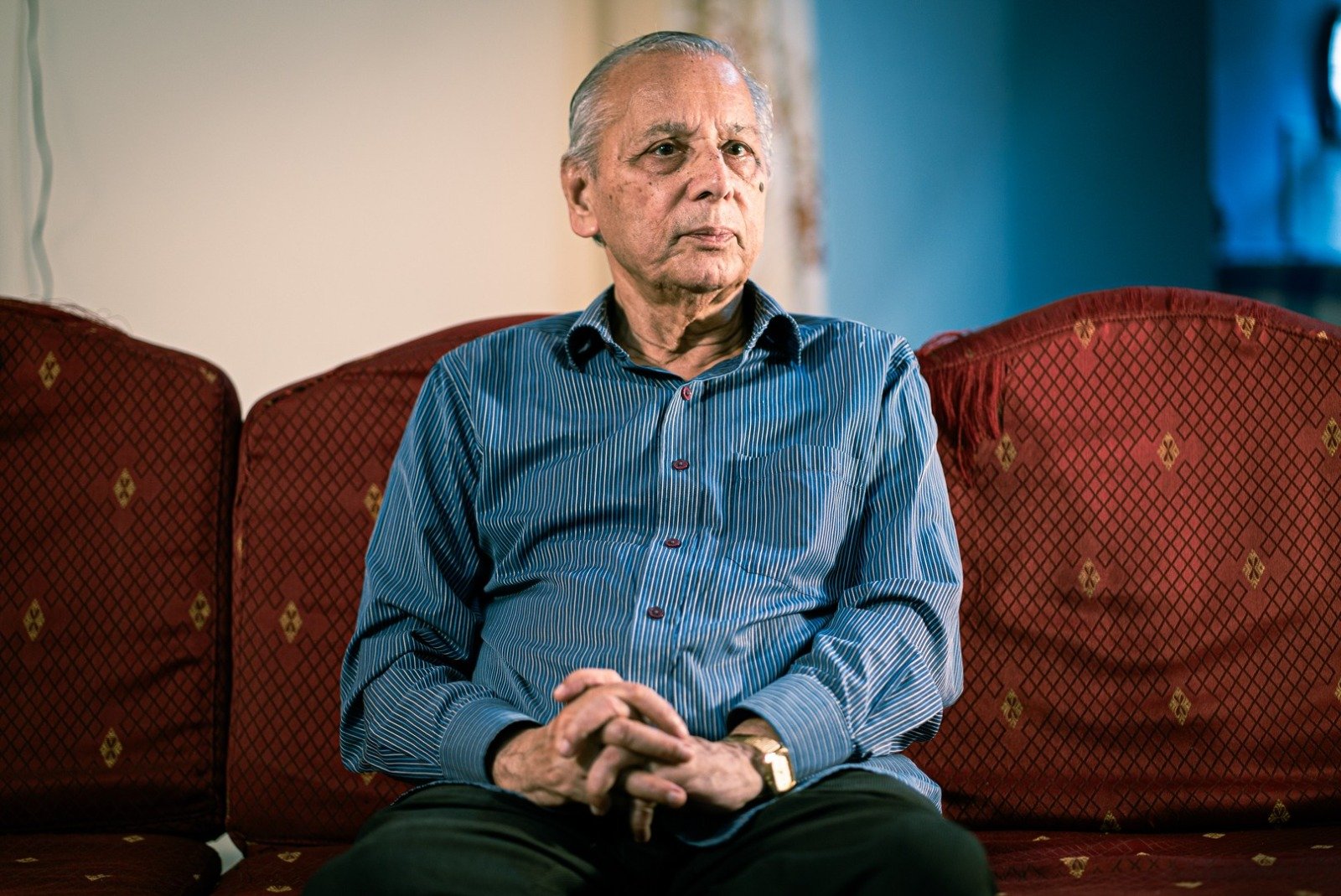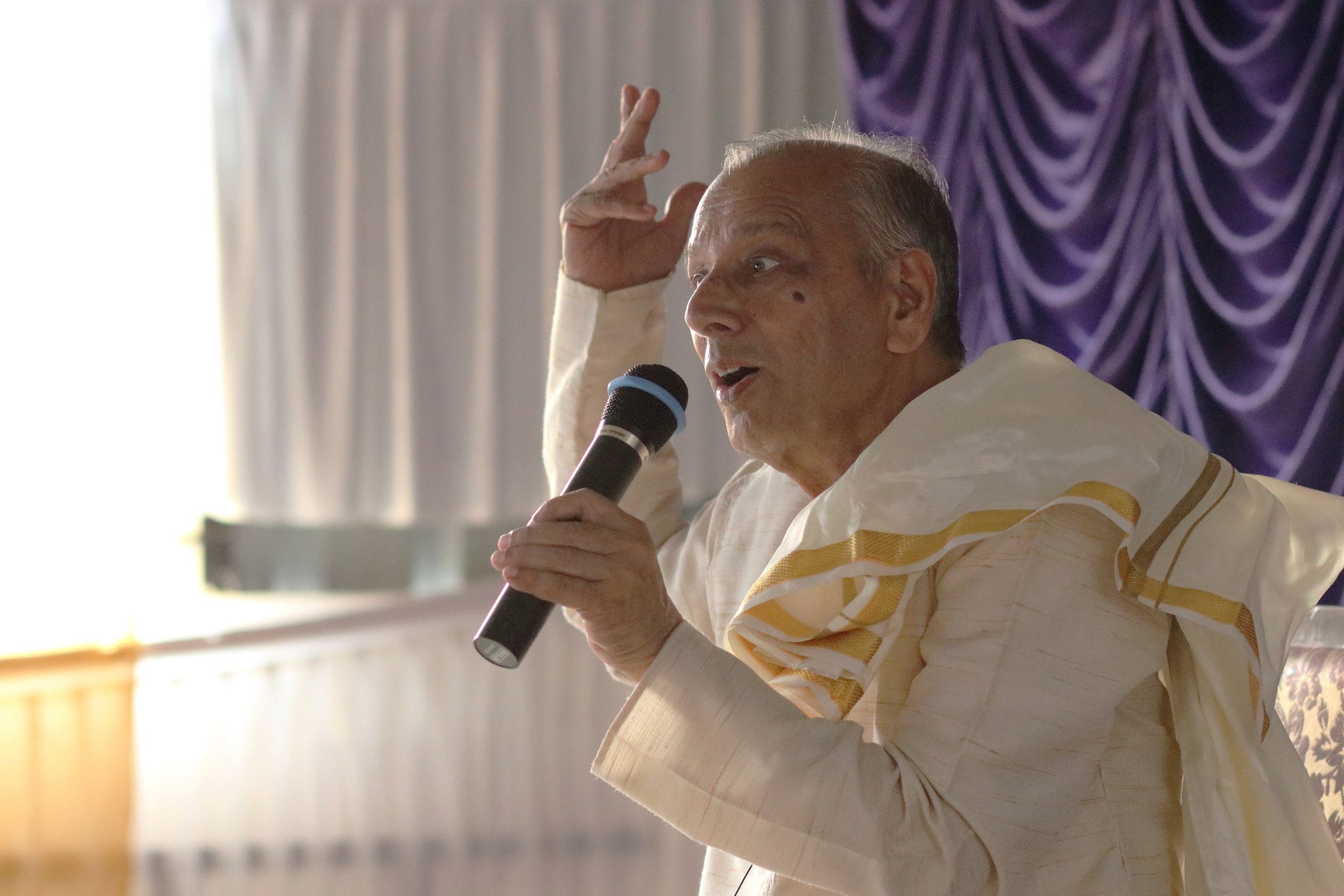Mysore Yoga Traditions Online Studies Program Presents
Yoga Sutras of Patanjali
ONLINE PHILOSOPHY COURSE WITH DR. H. V. NAGARAJ RAO
STARTING SUNDAY, DECEMBER 22nd 2024
7:00AM CENTRAL USA TIME
14:00 WESTERN EUROPE
18:30 INDIA TIME
Yoga Sutras of Patanjali
The classical text which defines yoga - the Patanjali Sutras take us on a journey into the human psyche. Take a deep dive with us as we explore the theoretical foundations of yoga with one of India’s most respected scholars!
Yoga is one of six classical Indian philosophies. In order to understand yoga in it’s original context, one has to have an understanding of the other Indian philosophical systems, Sankhya Karika, Upanishads, Bhagavad Gita and other texts. For this reason it is essential to study with a great scholar such as Dr. H. V. Nagaraj Rao! This will be a thorough course in yoga that will open our hearts and minds to the original concepts that yoga is founded upon as Dr. Rao masterfully explains the meaning of yoga in a way that is accessible and understandable to everyone.
Duration: 4 months
Format: Weekly live sessions systematically exploring each chapter (Pada) of the Yoga Sutras with Dr. Rao, who provides expert explanations based on his extensive knowledge of Sanskrit and classical Indian philosophy.
Overview of the Yoga Sutras
Patañjali divided the Yoga Sutras into four chapters, or Padas, containing 196 aphorisms. These chapters present a comprehensive framework for understanding the philosophy and practice of Yoga, grounded in the dualistic metaphysics of Samkhya. They explore the relationship between Puruṣa (pure consciousness) and Prakriti (mind, matter, and emotions), and offer practical tools to attain Kaivalya (liberation).
*Depending on the questions asked and the chemistry of the group, Dr. Rao will share what feels most appropriate in each lesson. Below you will find a general outline of the subjects we will be exploring.
Month 1: Samadhi Pada (The Path of Contemplation) – 51 Sutras
Key Themes:
Samadhi, the state of reliable perception (pramāṇa), where Puruṣa abides in its true nature.
The famous definition of Yoga: "Yogaś citta-vṛtti-nirodhaḥ" (Yoga is the stilling of the fluctuations of the mind).
The seven practices to calm the mind and attain samadhi, including bhakti (devotion) as a less arduous method.
Key Sutras:
1.2: Definition of Yoga.
1.3-1.4: Revelation of the Seer in its essential nature.
1.23: Path of devotion to Ishvara.
1.33-1.39: Practices to stabilize the mind.
Dr. Rao will explain Samadhi as the core technique for mental stillness, laying the foundation for Kaivalya. The chapter concludes with an in-depth explanation of meditative absorption and its nuances.
Month 2: Sadhana Pada (The Path of Practice) – 55 Sutras
Key Themes:
The preparatory practice of Kriya Yoga:
Tapas (austerity),
Svadhyaya (self-study),
Ishvara Pranidhana (devotion).
The Ashtanga Yoga system, detailing eight limbs for self-purification and insight:
Yama: Ethical restraints (e.g., Ahimsa—non-violence, Satya—truthfulness).
Niyama: Observances (e.g., Santosha—contentment, Shaucha—cleanliness).
Asana: Steady physical posture.
Pranayama: Breath control.
Pratyahara: Sense withdrawal.
Dharana: Concentration.
Dhyana: Meditation.
Samadhi: Absorption.
Dr. Rao will emphasize the progressive stages of practice and their practical applications for modern yogis.
Month 3: Vibhuti Pada (The Path of Powers) – 56 Sutras
Key Themes:
Exploration of Samyama (the combined practice of Dharana, Dhyana, and Samadhi).
Attaining Siddhis (extraordinary powers) and their ethical implications.
Key Sutras:
3.1-3.12: Techniques of Samyama.
3.38: The potential distraction posed by Siddhis.
Dr. Rao will elaborate on the philosophical and ethical dimensions of spiritual powers, their connection to Tattvas (elements of reality), and their role in the journey toward liberation.
Month 4: Kaivalya Pada (The Path of Liberation) – 34 Sutras
Key Themes:
Final realization of Kaivalya (liberation), where Puruṣa detaches from Prakriti.
Explanation of the metaphysical concepts of Gunas (qualities):
Sattva: Clarity and harmony.
Rajas: Activity and passion.
Tamas: Ignorance and lethargy.
Key Sutras:
The process of disentanglement from the cycles of ignorance and bondage.
The culmination of the yogic path in freedom and isolation of the Seer from mental disturbances.
Dr. Rao will clarify the parallels between the Yoga Sutras, Samkhya philosophy, and Upanishadic teachings, offering a holistic understanding of the path to liberation.
Course Highlights:
Sanskrit Proficiency: Sutras will be read, chanted, and interpreted in Sanskrit.
Philosophical Insights: Cross-references to classical texts such as the Samkhya Karika, Upanishads, and Mahabharata.
Practical Application: Guidance on incorporating the teachings into daily life and meditation practices.
Interactive Discussions: Opportunities to engage with Dr. Rao and fellow participants in exploring the nuances of the text.
This course offers a profound exploration of the Yoga Sutras, guided by Dr. H. V. Nagaraj Rao, whose unparalleled expertise in Sanskrit and classical Indian philosophy ensures a profound learning experience.
The course will proceed as follows
(Approximately) Four Months of weekly lectures each Sunday / 16 hours of lecture with Dr. Rao.
(Each lecture will be a minimum of 1 hour, with time for questions and answers at the end)
*Depending on how many questions we have and how quickly we move through the material it may take more time to complete the course.
It will be helpful to purchase a copy of the Yoga Sutras to read between sessions so you understand the material more thoroughly.
These are available on Amazon.com
You can also find free digital copies online: https://archive.org/details/PatanjaliYogaSutraBySwamiVivekananda/page/n7/mode/2up
Tuition: $139.99 USD
To join the course, please fill out the form below, submit, and then click “join the course” for payment.
*NOTE: If you don't fill out the form, you will not receive your Zoom links!
If you cannot attend the live sessions, don’t worry! Lecture recordings will be provided to all participants. Recordings are yours to keep after the course is complete. These also include a written essay of the content covered in each lesson.
*We have a limited number of discount scholarships for sincere students who have difficulty to pay the full tuition. Contact Andrew for details (contact info is below). We are dedicated to sharing this knowledge and no one will be excluded because of money.
MORE ABOUT DR. RAO
A brief Bio of Dr. H. V. Nagaraj Rao
Vidwan H.V. Nagaraja Rao is a great scholar of Sanskrit grammar who has been trained in both traditional and modern methods of education. His specialty is Sanskrit grammar and poetics. In his early years, he was a researcher at the Oriental Research Institute in Mysore and has published many original Sanskrit works with English and Kannada translations. Dr. Rao has also lectured in many countries around the world, including Thailand, Hong Kong, the United States, Israel, and England. He has taught Sanskrit at the University of Chicago as a visiting professor and was invited as a fellow to the Hebrew University of Jerusalem. Dr. Rao guided the World Sanskrit Conference in Edinburgh, England, in 2006, where he delivered a speech in chaste Sanskrit. Dr. Rao was awarded honors for his translations by the Sahitya Academy, the highest literary body in India, in 2006. Recently, he was chosen for honor by the President of India as a noted Sanskrit scholar. He is the honorary editor of Sudharma, the only Sanskrit daily newspaper in the world. With his razor-sharp wit, at the age of 80, Dr. Rao continues his lifelong passion for teaching and sharing ancient Indian knowledge systems with people from around the world.
Professor Rao has an uncanny ability to shed new light on texts such as theYoga Sutras, Bhagavad Gita and the Upanishads with his infectious passion for logic and philosophy and his excellent ability to communicate in English. Students leave his presentations with a feeling of liberation from the mundane and inspiration to strive for higher goals in life.










